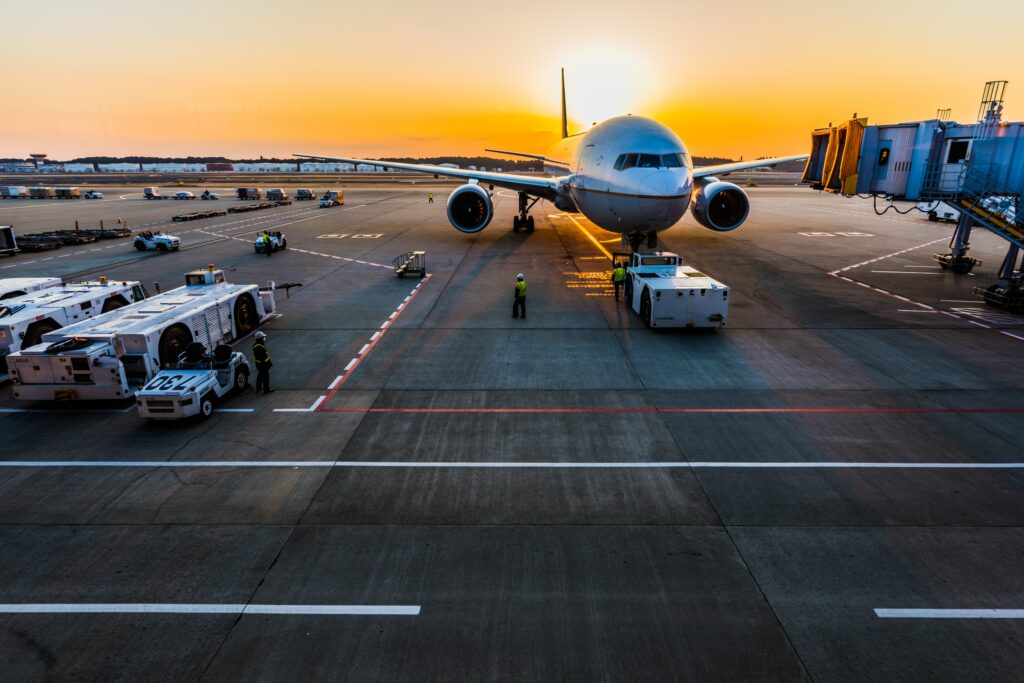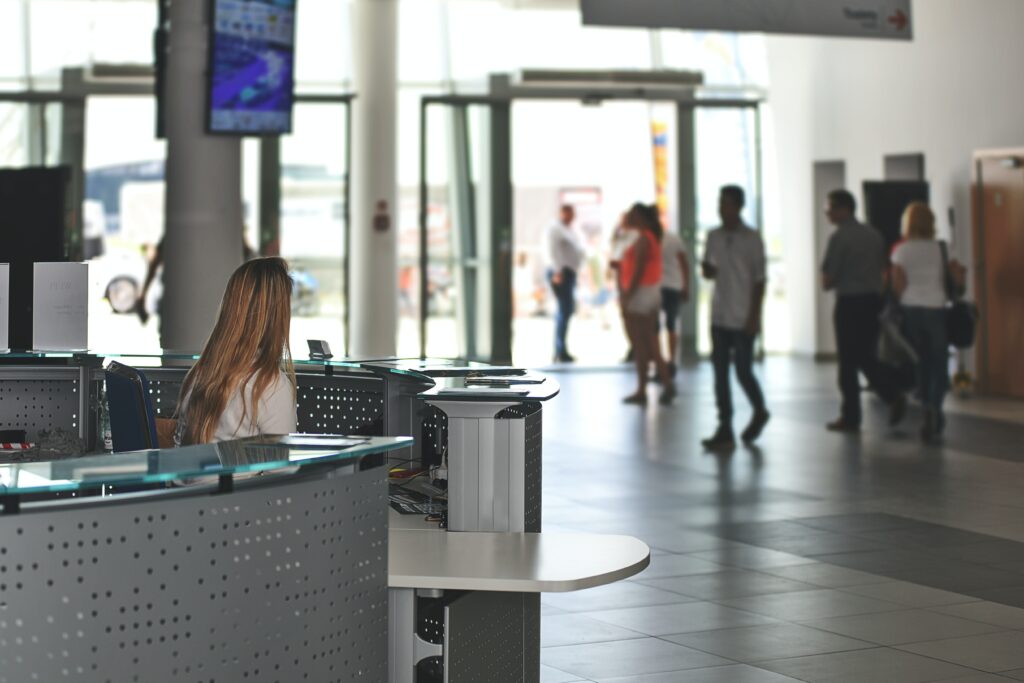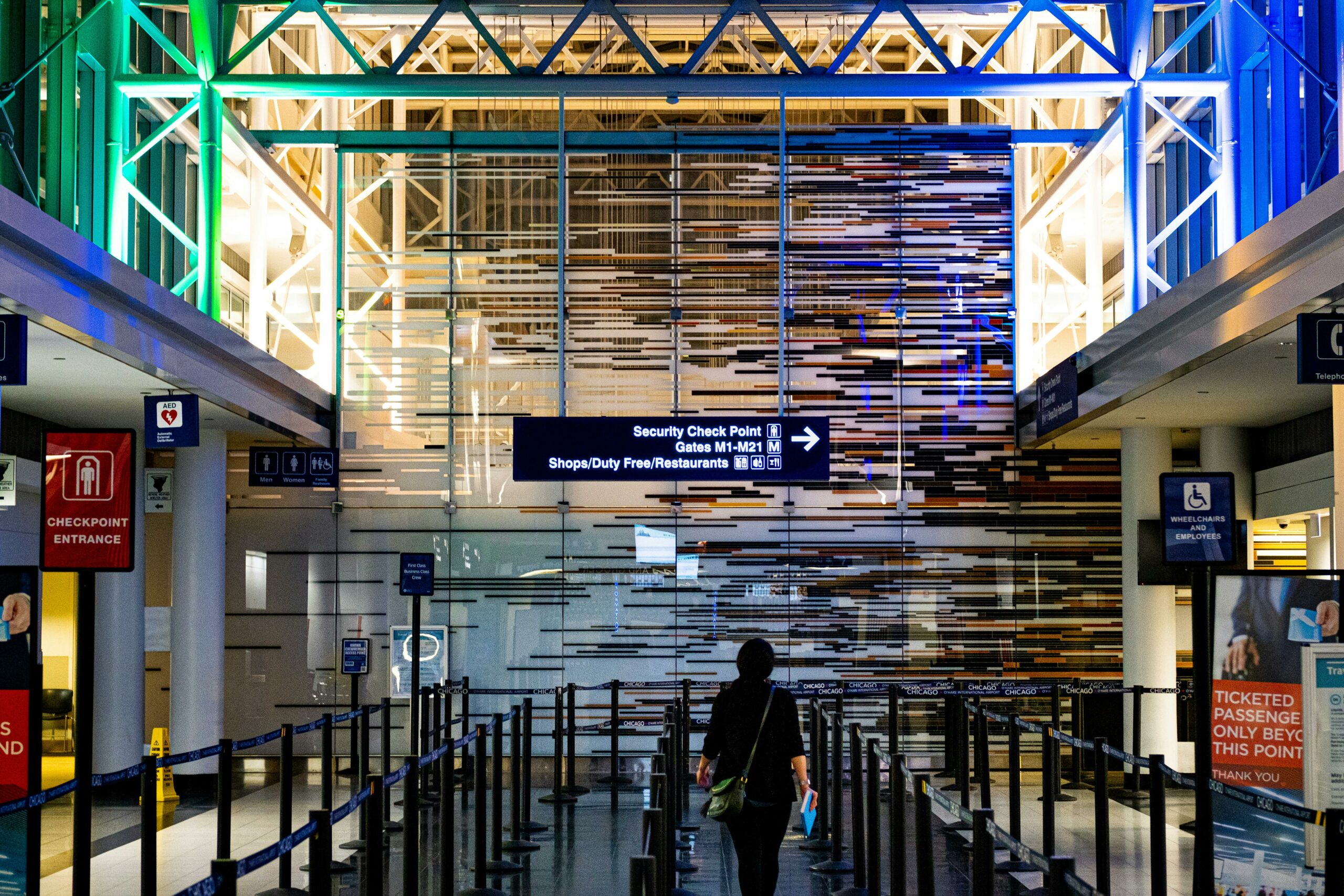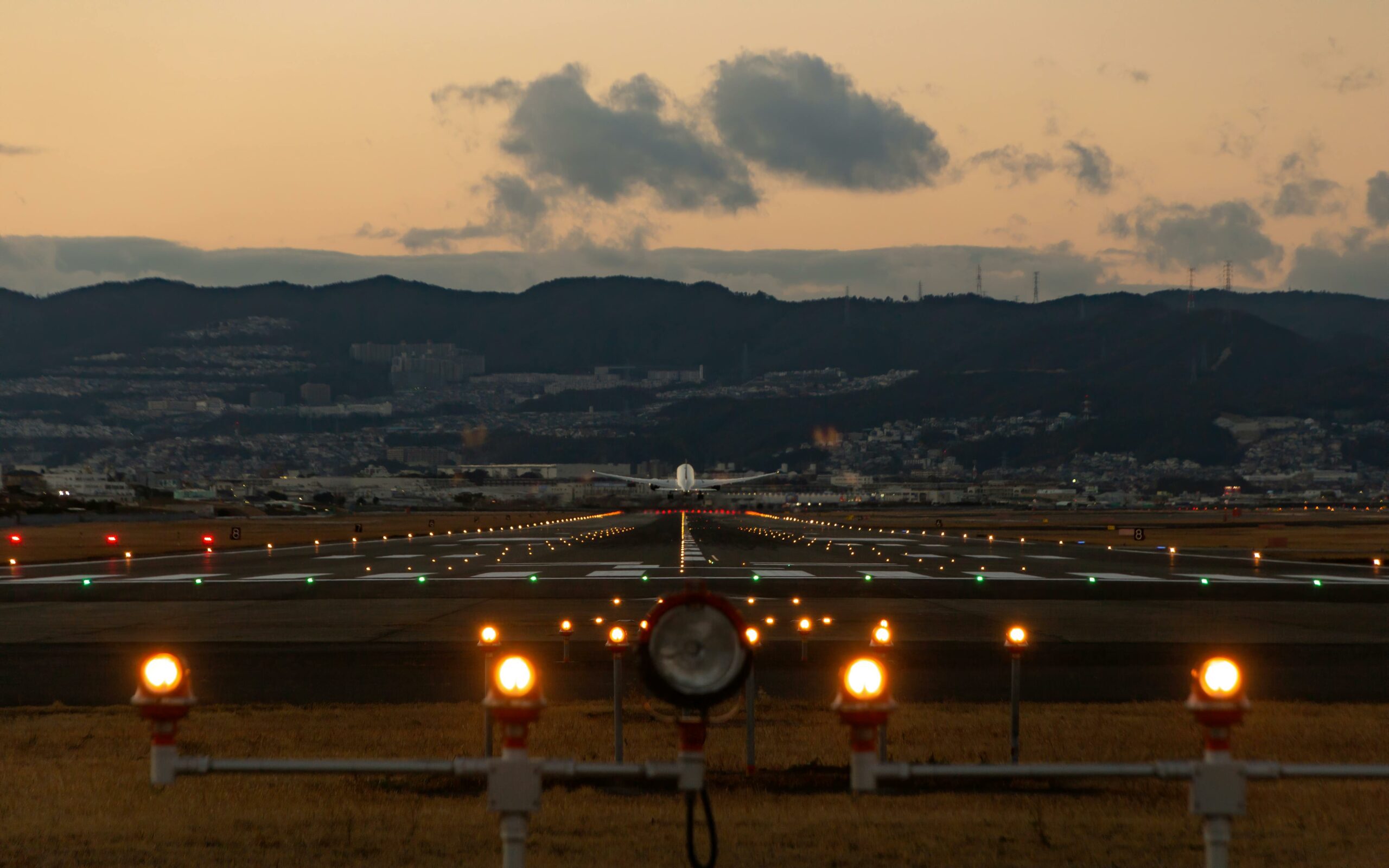5 Major Airport Problems Passengers Face Every Year: A Helpful Guide

Passengers who travel by air often face a variety of problems at airports. These issues can range from minor inconveniences to major disruptions that can ruin a trip. In this article, we will discuss the top five airport problems that passengers face every year.
One of the most common problems that passengers encounter at airports is flight delays. Delays can occur for many reasons, including weather conditions, mechanical issues, and air traffic congestion. In 2023, passengers may experience more delays due to increased air traffic and a shortage of available airport personnel.
Another major problem that passengers face at airports is lost or delayed luggage. This can be a frustrating experience for travelers, especially if they are on a tight schedule or have important items in their luggage. In 2023, passengers may face more luggage issues due to increased security measures and the use of new baggage screening technology.
Related Posts:
Safety Concerns in Airports

Safety is the top priority of any airport, and passengers should feel confident that they are in good hands when they travel. However, safety concerns can arise due to a variety of factors, including weather, mechanical issues, and human error. Passengers should always be aware of safety procedures and follow them closely.
One of the biggest safety concerns at airports is terrorism. Law enforcement agencies work tirelessly to prevent terrorist attacks and keep passengers safe. There are strict security measures in place, including metal detectors, body scanners, and baggage screenings. Passengers should be prepared to comply with these measures and be patient during the screening process.
Another safety concern is the crew’s ability to handle emergency situations. Flight crew members undergo extensive training to prepare them for emergencies, but unexpected situations can still arise. Passengers should pay close attention to the safety briefing before takeoff and be prepared to follow instructions from the crew in the event of an emergency.
Training is also a crucial aspect of safety at airports. All airport personnel, including baggage handlers and maintenance workers, undergo training to ensure they are aware of safety procedures and can identify potential hazards. This training helps to prevent accidents and ensure the safety of passengers and employees.
In summary, safety concerns are a major issue at airports, but passengers can take comfort in knowing that there are many measures in place to keep them safe. Passengers should always be aware of safety procedures and follow them closely to ensure a safe and enjoyable travel experience.
Related Posts:
Delays and Efficiency
One of the most common problems passengers face at airports is delays. Delays can be caused by a variety of factors, such as weather conditions, air traffic congestion, mechanical problems, or security issues. Delays can be frustrating for passengers, who may miss connecting flights, important events, or business meetings.
Efficiency is another important factor that affects passengers’ experience at airports. Efficiency refers to the ability of the airport system to handle the volume of passengers and baggage in a timely and organized manner. Efficient airports are able to minimize wait times, streamline processes, and provide clear and accurate information to passengers.
Delays and efficiency are closely related, as delays can often result from inefficiencies in the airport system. For example, if there are not enough staff to handle security screenings, passengers may experience long wait times and miss their flights. Similarly, if the baggage handling system is not functioning properly, it can cause delays and inconvenience for passengers.
Airlines also play a role in delays and efficiency at airports. Airlines are responsible for scheduling flights, managing their own staff, and ensuring that their planes are in good condition. If an airline experiences mechanical problems or staffing shortages, it can cause delays for passengers. On the other hand, airlines that are well-managed and efficient can help minimize delays and improve the overall airport experience for passengers.
In summary, delays and efficiency are major airport problems that passengers face every year. These issues can be caused by a variety of factors, including weather conditions, air traffic congestion, mechanical problems, security issues, and airline management. To improve the airport experience for passengers, airports and airlines need to work together to minimize delays and improve efficiency in the airport system.
Luggage Issues in Airports

One of the most common issues that passengers face at airports is luggage-related problems. These issues can range from lost or delayed luggage to damaged or stolen luggage.
Lost luggage is a major inconvenience for passengers, as it can cause delays and disrupt travel plans. According to recent statistics, approximately 25 million bags are mishandled each year, with around 1% of these bags being permanently lost.
In addition to lost luggage, passengers also face the risk of having their luggage damaged or stolen. This can occur during the handling and transportation of the luggage, or due to theft by other passengers or airport staff.
To mitigate these issues, passengers are advised to take certain precautions when travelling with luggage. This includes labeling all luggage with name tags and contact information, using luggage locks to prevent theft, and packing valuables in carry-on bags.
Overall, luggage issues are a common problem faced by passengers at airports. However, by taking certain precautions and being prepared for potential mishaps, passengers can minimize the impact of these issues on their travel plans.
Staffing and Training

One of the major problems that passengers face every year at airports is the issue of staffing and training. The staff at airports play an important role in ensuring that passengers have a smooth and hassle-free experience. However, understaffing and inadequate training can lead to a number of issues.
Understaffing can result in long wait times at check-in counters, security checkpoints, and boarding gates. This can be frustrating for passengers who may be in a hurry to catch their flights. In addition, understaffing can also lead to a lack of assistance for passengers with disabilities or those who require special assistance.
Inadequate training can also cause problems for passengers. For example, flight crew members who are not properly trained may not be able to handle emergency situations properly. This can put passengers at risk and create a stressful environment for everyone involved.
To address these issues, airports need to ensure that they have enough staff members who are properly trained. This includes not only flight crew members, but also ground staff and security personnel. By investing in staffing and training, airports can improve the overall passenger experience and ensure that everyone has a safe and stress-free journey.
Compensation and Customer Satisfaction
One of the major issues that passengers face at airports is flight delays and cancellations. These issues can cause a lot of inconvenience and frustration for passengers. However, many airlines offer compensation to passengers who experience these issues. Compensation can come in the form of cash, vouchers, or points that can be used towards future flights.
Passengers who are satisfied with the compensation they receive are more likely to have a positive view of the airline they are flying with. This can lead to increased customer loyalty and repeat business for the airline. On the other hand, passengers who are dissatisfied with the compensation they receive are more likely to have a negative view of the airline and may choose to fly with a different airline in the future.
The airline industry is aware of the importance of customer satisfaction and compensation. Many airlines have implemented policies and procedures to ensure that passengers are fairly compensated for flight delays and cancellations. These policies and procedures are designed to provide passengers with a positive customer experience while also protecting the airline’s bottom line.
In conclusion, compensation and customer satisfaction are important factors in the airline industry. Passengers who are satisfied with the compensation they receive are more likely to have a positive view of the airline they are flying with. Airlines that prioritize customer satisfaction and compensation are more likely to have repeat business from satisfied customers.
Effects of the Pandemic
The COVID-19 pandemic has had a significant impact on the aviation industry, causing a sharp decline in passenger traffic and revenue for airlines worldwide. The pandemic has also led to several changes in airport operations, resulting in new challenges for passengers.
One of the most significant effects of the pandemic is the increased emphasis on health and safety measures at airports. The Federal Aviation Administration (FAA) and airlines have implemented various protocols to ensure the safety of passengers and staff, such as mandatory face coverings, enhanced cleaning procedures, and social distancing guidelines. These measures have resulted in longer wait times and increased screening procedures, causing frustration for some passengers.
Another effect of the pandemic is the reduction in flight schedules and route options. Airlines for America (A4A) reported that U.S. airlines reduced their schedules by 60% in 2020 compared to the previous year. This reduction has resulted in limited flight options for passengers, making it more challenging to find convenient travel times and routes.
The pandemic has also caused financial difficulties for airlines, resulting in the cancellation of some flights and the closure of some airports. This reduction in airport options has made it more challenging for passengers to find affordable and convenient travel options.
Finally, the pandemic has led to increased uncertainty and unpredictability in travel. Changes in travel restrictions, quarantine requirements, and border closures have made it difficult for passengers to plan and book travel with confidence. This uncertainty has led to increased stress and anxiety for some passengers.
In summary, the COVID-19 pandemic has had a significant impact on airport operations and passenger experience. Increased health and safety measures, reduced flight schedules, financial difficulties for airlines, and increased uncertainty have all contributed to new challenges for passengers.
Regulations and Oversight
Passengers rely on airport regulations and oversight to ensure their safety and security while traveling. The Federal Aviation Administration (FAA) is responsible for regulating and overseeing airport operations in the United States. The Transportation Secretary, currently Pete Buttigieg, oversees the FAA and is responsible for ensuring that the agency is effectively carrying out its duties.
One of the major roles of the FAA is to conduct audits of airports to ensure compliance with federal regulations. These audits cover a wide range of areas, including airport security, air traffic control, and runway safety. The FAA also oversees the training and certification of airport personnel, including air traffic controllers, pilots, and maintenance workers.
In recent years, the FAA has faced criticism for its oversight of airport safety and security. Some experts have argued that the agency is too focused on promoting the interests of the aviation industry and not doing enough to ensure passenger safety. However, the FAA has taken steps to address these concerns, including increasing the frequency of airport inspections and implementing new safety regulations.
Overall, regulations and oversight play a critical role in ensuring the safety and security of passengers at airports. While there are challenges to effective oversight, the FAA and other entities involved in airport regulation are working to address these issues and improve safety for passengers.

